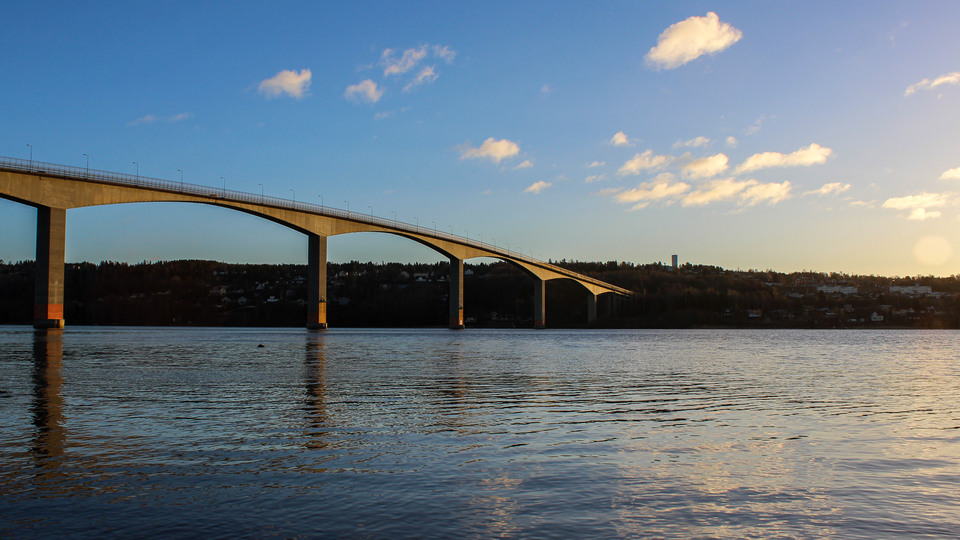
Alnösundet at Fillanverket.
Climate change is forcing nitrogen purge
The Bothnian Sea and the Gulf of Bothnia have so far not been assessed as sensitive to nitrogen emissions. A new research project will now find out the most effective way to purify nitrogen from wastewater in a climate that is cold for large parts of the year. Both Swedish environmental authorities and the EU are sending signals that the requirements will be tightened to reduce the risk of algal blooms and eutrophication.
Today, no separation of nitrogen is generally required at Swedish treatment plants on the Baltic coast north of Norrtälje. Should this change, it means large costs.
– The fact that the climate is getting warmer can increase the sensitivity in the Bothnian Sea and the Gulf of Bothnia and cause nitrogen emissions to lead to algal blooms, something that is already a major problem in the Baltic Proper but not yet in the northern parts of the Baltic Sea. If there is a requirement for nitrogen purification, we must have sufficient knowledge of how we supplement the treatment plant in Norrland with the nitrogen purification step, says Andriy Malovanyy, project manager at IVL.
The current project will investigate how the technology called MBBR (Moving Bed Biofilm Reactor), a variant of the biological step in the treatment plant, is best designed to remove nitrogen at low temperatures. It is about the most cost-effective nitrogen purification based on a number of parameters such as temperature, heating, time required, the size of the pools and the different steps of the process.
A pilot plant will be located at Fillan wastewater treatment plant in Sundsvall and have two separate, but parallel, lines placed in a lake container. The trials will last for a year.
The project is led by IVL Swedish Environmental Research Institute and takes place in collaboration with, among others, Central Sweden Water and Waste in Sundsvall (MSVA), Environment and Water in Örnsköldsvik, Vakin in Umeå, Luleå municipality and Purac AB and with expert support from prof. em. Hallvard Ødegaard and techn. dr. Björn Rusten. Funding has also come from the Foundation Institute for Water and Air Conservation Research (SIVL), the Baltic Sea Action Plan through NEFCO and the Swedish Water Development. The project will be completed by the end of 2022 and will be presented in an SVU report.
For further information, please contact:
Andriy Malovanyy, andriy.malovanyy@ivl.se, +46 (0)10-788 6874
Malin Tuvesson, malin.tuvesson@msva.se, +46 (0)73-275 25 66
